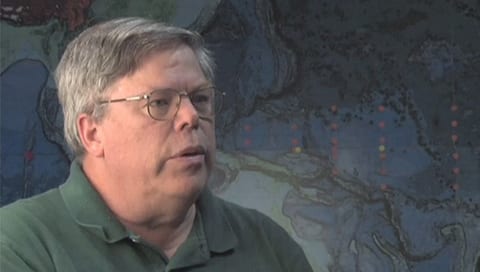In the tumultuous arena of climate discourse, the notion that global warming is a hoax has garnered significant traction among certain factions of the political landscape, particularly among staunch supporters of former President Donald Trump. This perspective raises essential questions regarding the intertwining of political ideology and scientific consensus. As we delve into this complex topic, it’s imperative to dissect the historical, ideological, and socio-economic dimensions that contribute to the belief held by many Trump supporters regarding climate change.
To begin with, the origins of the skepticism surrounding global warming can be traced back to a plethora of factors. For many, the alignment of global warming skepticism with conservative political ideology is not merely coincidental. The genesis of this viewpoint is deeply rooted in the economic and regulatory anxieties prevalent during the late 20th century. The ascendance of climate change as a significant political issue in the 1990s was met with resistance from those who perceived environmental regulations as potential impediments to free market operations. Consequently, narratives emerged that dismissed climate change as exaggerated or fabricated.
Donald Trump, as a prominent figure, catalyzed this discourse further. His outspoken denial of climate change and characterization of it as a “Chinese hoax” offered a rallying cry for his supporters. This bold proclamation served to galvanize a faction that valued economic growth over environmental stewardship. Trump’s statements not only validated existing skepticism but also fostered an environment where questioning climate science became a badge of honor among his followers.
The psychological framework behind this phenomenon is significant. Confirmation bias—a cognitive phenomenon wherein individuals favor information that aligns with their pre-existing beliefs—plays a pivotal role. Trump supporters, many of whom are ingrained in conservative ideologies, often seek out media and sources that reinforce their skepticism towards climate science. This creates an echo chamber in which dissenting opinions are marginalized. Additionally, the phenomenon of motivated reasoning leads individuals to reject scientific evidence that contradicts their worldview. As a result, the assertion that global warming is a hoax becomes a simplistic explanation for a complex global challenge.
Moreover, socio-economic factors cannot be overlooked. Many Trump supporters hail from regions heavily reliant on fossil fuel industries. For these individuals, acknowledging climate change poses existential threats to their livelihoods. The fear of job loss and economic uncertainty breeds a potent reluctance to embrace the idea of transitioning towards renewable energy sources. Thus, the narrative of climate change as a hoax not only becomes an ideological stance but also a necessary coping mechanism for economic fears.
Although the prevailing sentiment among Trump supporters is one of skepticism, it is essential to recognize that not all individuals within this demographic uniformly reject climate science. Some are beginning to grapple with the realities of climate change, albeit from a unique ideological perspective. For instance, there is a growing discourse around the concept of “climate adaptation,” where supporters may acknowledge climate change but frame their understanding around adaptation strategies rather than mitigation efforts. This shift highlights a nuanced engagement with the topic that transcends simplistic dichotomies of belief and disbelief.
For many, personal experiences serve as the catalyst in reevaluating previously held beliefs. Increasingly erratic weather patterns and unprecedented natural disasters have permeated public consciousness, compelling some individuals to reconsider their stance on climate change. The local manifestations of broader climate trends can be difficult to ignore, and as the ramifications become more tangible, some might venture to question the narratives they have been presented with.
In contrast, the role of information dissemination cannot be underestimated. The digital landscape, awash with various media outlets and social media platforms, allows for the rapid spread of misinformation. For Trump supporters steadfast in their belief that climate change is a hoax, targeted messaging from influential figures and organizations perpetuates this narrative. The power of social media can amplify misleading information, making it increasingly challenging for individuals to encounter credible scientific findings. Consequently, the struggle between scientific understanding and popular belief continues to shape the climate conversation.
Yet, as we navigate these turbulent waters, the overarching necessity for dialogue remains paramount. Bridging the chasm between scientific consensus and the perspectives of climate skeptics is not a matter of defiance but one of empathy and strategic communication. Engaging with individuals who harbor doubts about climate change requires addressing concerns directly while providing a platform to explore alternatives that align with their values. This approach not only fosters understanding but also promotes a potential shift towards constructive action.
Ultimately, discerning the beliefs of Trump supporters regarding global warming is not merely about isolating a single narrative but rather an exploration of broader societal trends. Understanding the multifaceted layers—cognitive biases, economic realities, and the influence of social media—affords us a more comprehensive picture of why some individuals embrace the idea that climate change is a hoax. This complex interplay of beliefs underscores the urgent need for ongoing education, open dialogue, and tailored approaches to confront the existential implications of climate change.
In the end, whether one sees global warming as a hoax or an undeniable reality, the imperative for action remains a common thread. The sustainability of our planet hinges not on partisan divisions but on collective acknowledgment of scientific evidence and a commitment to safeguarding our environments for future generations. The challenge now lies in facilitating collaboration among diverse perspectives to forge a united front against the ever-looming threats posed by climate change.




